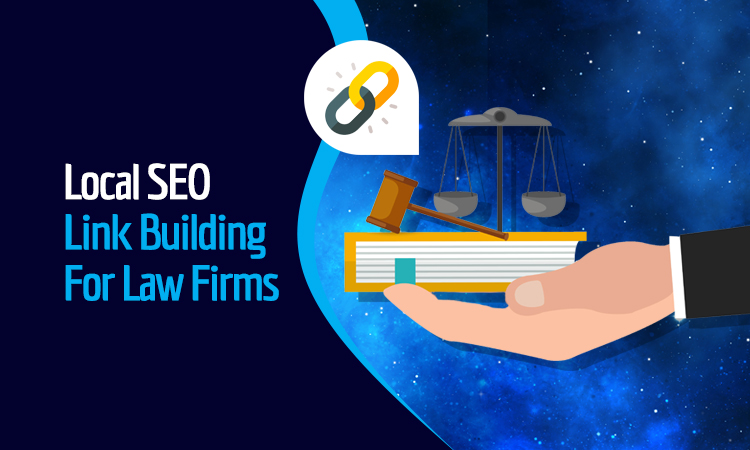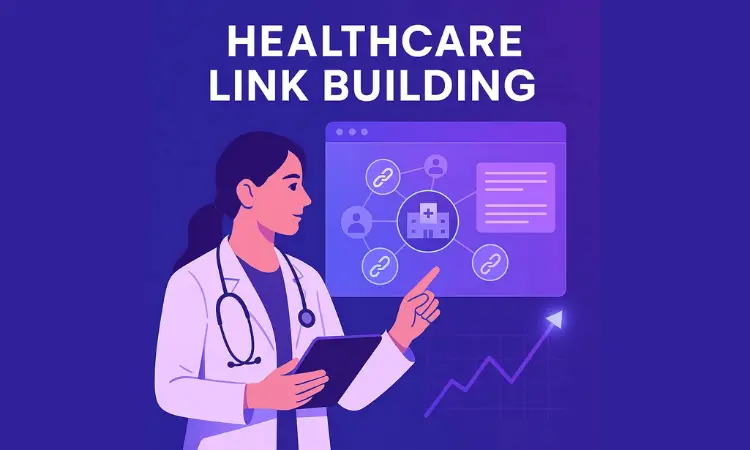Local SEO Guide for Law Firms
Nearly 50% of Google searches have local intent. As a lawyer, you understand the importance of being where your clients are.
But in the digital age, visibility goes beyond your physical office — it’s about topping local search results where clients are actively seeking legal help.
This guide to ‘local seo for lawyers’ offers straightforward strategies to help your practice rank higher in search engines.
Get ready for practical, step-by-step advice on transforming your law firm’s local SEO and securing more signed cases.
Looking for Law Firm SEO Services? We can help!
Key Takeaways
- Local SEO is critical for law firms. It significantly influences visibility and client acquisition by optimizing for local search components like the Local Pack and ensuring information accuracy across online platforms.
- Law firms must meticulously craft their Google Business Profile with strategic descriptions and categories to attract clients and rank higher locally. They must also prioritize consistent citations across directories, actively manage reviews, and optimize their website with local content and on-page elements.
- Advanced tactics for lawyers include engaging in local link building, participating in community events to increase visibility, leveraging multimedia content to enhance authenticity, and using Local Services Ads to effectively target prospective clients.
Mastering Local SEO for Law Firms: The Essentials
Local SEO facilitates the clients’ preference for local legal services and aids in establishing your firm’s brand in the local market.
So, what does local search engine optimization involve?
At its core, local SEO enhances your law firm’s visibility on the search engine results page through local-specific components such as the Local Pack, directly influencing local search relevance and prominence.
Google’s algorithms are designed to recognize local intent and adjust search results accordingly, factoring in the physical location of your law firm’s office and the searcher’s proximity. If your law firm isn’t optimized for local SEO, you risk losing significant leads, as 75% of internet users never move beyond the first page of search results.
To enhance local search performance, your law firm needs to be in sync with Google’s local ranking factors, such as relevance to the query and distance from the searcher to the business.
Here is how you can start building your local SEO presence.
-
Crafting a Google Business Profile That Stands Out
A well-optimized Google Business Profile is indispensable for your law firm to improve its visibility in Google’s map pack. This should be the starting point when developing a local SEO strategy for your law firm.
However, optimizing a Google Business Profile is more than just adding your business name and contact details; it’s about strategically selecting categories, crafting engaging descriptions, and regularly sharing blog posts.
Choosing the right primary category for your Google Business Profile listing can significantly impact its search visibility and local pack placement. Take the time to select the most accurate category that represents your law firm’s primary service.
The business description in your Google Business Profile should include:
- The business name
- Lead attorney’s full name
- Years of experience
- Practice areas
- Locations
- Recognitions
This will effectively engage potential clients. Regularly sharing blog posts on your Google Business Profile can enhance engagement and search visibility, but you must adhere to content guidelines.
Remember, crafting a standout Google Business Profile is an art that requires strategic thinking and constant tweaking.
-
Navigating Local Directories and Citations
Another essential aspect of local SEO is navigating local directories and citations. Consistency across online platforms is critical as Google verifies the location from multiple sources. Therefore, accurate and matching information across your website, directories, and social media profiles is essential.
Maintaining uniformity in business descriptions, addresses, and phone numbers across local directories can boost your law firm’s local SEO. Maintaining NAP (Name, Address, and Phone number) consistency across all online directories helps to prevent confusion for prospects and search engines. This means your law firm should be listed on relevant directories such as:
- Yelp
- Yellow Pages
- Apple Maps
- Bing Places for Business
- Legal-specific directories like: Justia, Avvo, FindLaw, and Martindale-Hubbell.
These legal directories help establish an online presence and credibility by displaying information about your lawyer or law firm and provide a platform for clients to leave reviews, further impacting SEO. This leads us to the next essential step in mastering local SEO for law firms: embracing reviews and ratings.
-
Embracing Reviews and Ratings
In the current digital era, online reviews have become the new word-of-mouth. Positive reviews on Google and other review sites reinforce your law firm’s relevance and prominence, contributing to higher local search rankings and greater visibility to potential clients. So, how do you attract positive reviews?
Firstly, delivering exceptional legal services and client experiences is critical. After all, happy clients are more likely to leave positive reviews. You can also directly ask satisfied clients for feedback and host events like free community classes to engage your audience. But remember, it’s not just about getting reviews; it’s about how you respond to them.
Engaging with clients by responding to all reviews demonstrates care for client feedback and can mitigate the impact of negative reviews while reinforcing a positive online presence. To boost local SEO effectively, your law firm should aim to obtain reviews on prominent websites and directories such as their Google Business Profile and Yelp, which regularly show up in top search engine positions.
But while optimizing your online presence is essential, so is your website’s local SEO, essentially local search engine optimization.
Tailoring Your Law Firm’s Website for Local Search Results
Since your website is your law firm’s digital home, optimizing it for local search is paramount. Creating local content demonstrates understanding your potential clients’ needs and enhances local SEO by incorporating relevant local keywords. However, creating local content is just a part of the bigger picture.
You must focus on on-page elements like content and meta tags to optimize your website for local search. These elements should align with your top keyword priorities, which include local practice areas and locations. Remember, quality content focused on user search intent and aligned with your law firm’s brand solidifies trust and supports the user experience on your website.
Ongoing optimization of these on-page SEO components is necessary to maintain your law firm’s website’s relevance and ranking in local search results. Let’s delve deeper into the significance of location-specific landing pages and on-page elements for local relevance.
-
Location-Specific Landing Pages for Your Law Firm
Consider crafting specific landing pages for each practice area and geographic location to optimize your website for local search. This can improve visibility and search ranking. Having location-specific landing pages signals to Google that your law firm is local to those places, which improves local SEO and enhances local rankings and SEO prominence.
Optimizing these local landing pages is essential to make a good impression and attract potential clients. Therefore, consider embedding a map on these location landing pages to aid in conveying your law firm’s physical presence to users and search engines. This small addition can make a big difference in your local SEO efforts.
Additionally, your firm’s landing page URL should be entered under the website URL in the business listing to guide Google in properly indexing the page. This brings us to the importance of optimizing on-page elements for local relevance.
-
On-Page Elements for Local Relevance
To maximize local search relevance, meta titles on your law firm’s website should focus on the location and top keyword(s), adhering to the character limit of 155–160 characters for meta descriptions. This strategic optimization can make a significant difference in your local SEO efforts.
However, be careful not to make the common SEO mistake of targeting a single keyword across multiple pages, known as keyword cannibalization. This can harm your page rankings. Instead, incorporating specialized, location-based, or practice-specific keywords can significantly enhance your law firm’s search relevance over generalized terms.
Transactional keywords are precious in local SEO for lawyers as they target potential clients poised to engage your law firm’s services. Your law firm can maximize its local SEO efforts by focusing on these transactional keywords. But remember, SEO isn’t just about optimizing your website and online presence. It’s also about building local links.

Local Link-Building Techniques
Local link building forms an integral part of local SEO. Backlinks are links from other websites that link back to your site, functioning as a vote of confidence for search engines and are essential for ranking in competitive local search areas. However, not all links hold the same value.
Check out our law firm link building guide for a detailed look at local law firm SEO link building.
For local search rankings, links must come from reputable, relevant, and local sources to avoid damage from spammy or irrelevant websites. Local sponsorships, community events, and participation in legal associations can provide valuable backlinks from authoritative domains, such as .org sites and media outlets, bolstering your law firm’s local SEO and recognition.
Engaging in local media relations, especially when handling newsworthy cases, can also lead to backlinks from media coverage, enhancing your firm’s profile and online authority. However, building local links is not the only focus. Community engagement and partnerships are vital in your local SEO strategies.
-
Community Engagement and Partnerships
Investing in local organizations and events related to your law firm’s client base can significantly impact your business and result in the acquisition of valuable local links. Your law firm can engage with local communities by sponsoring events, exhibiting at trade shows, or hosting workshops, all of which raise your profile in the local area.
A solid social media presence, especially on platforms like Facebook and LinkedIn, can increase local awareness and indirectly enhance local SEO efforts. Regularly sharing relevant content on social media keeps the local community engaged and supplements your law firm’s local SEO strategies. However, while community engagement and partnerships are essential, so is understanding and utilizing local service ads.
Understanding and Utilizing Local Service Ads
Operating on a cost-effective pay-per-lead model, Local Services Ads for law firms offer the following benefits:
- Payment is only required when a lead is generated through a call or message.
- These ads appear at the top of search results before traditional PPC Google Ads and organic results.
- By becoming Google Screened, your law firm receives a badge that indicates it has passed Google’s background check, enhancing its trustworthiness with potential clients.
- This can lead to a more prominent placement in search results.
Enrollment in Local Services Ads offers several benefits for your law firm, including:
- Displaying enriched business information such as photographs and reviews
- Improving your law firm’s local SEO performance by providing qualified leads
- Enhancing your local SEO presence, leveraging both Google Screened results and ad management features
This leads us to another crucial local SEO aspect: enhancing multimedia visibility.
Enhancing Visibility Through Multimedia
Photos not only build the authority of your law firm but also show proof of the real-world existence of your business, increasing potential clients’ confidence. Optimized images on your Google Business Profile add to your firm’s visibility and portray relevance to search engines. Engaging visual content in your Google Business Profile allows potential clients to:
- Know who they are planning to work with
- Get a sense of your firm’s personality and values
- See your office space and get a feel for your work environment
- Understand the types of cases you handle
- Get a glimpse of your team and their expertise
This can potentially encourage them to initiate contact.
Renaming photos using essential keywords can optimize your law firm’s local search engine visibility by potentially ranking for those specific keywords. Additionally, the maximum size limit for video uploads on Google Business Profile is set to 750MB, accommodating substantial multimedia content for law firms. However, simply adding photos and videos isn’t enough; how you leverage these multimedia elements counts.
-
Visual Content on Google Business Profile
For personal injury law firms, it is recommended that they add practice areas as products with pictures in their Google Business Profile. This means that their law firm should focus on categories of photos to upload to their Google Business Profile, including professional headshots, office interiors and exteriors, and images representing their practice areas.
Publishing and scheduling posts on your Google Business Profile with images or videos and a call to action can help your law firm keep your audience updated and engaged. Visual content can also significantly enhance your law firm’s online presence and local SEO efforts.
-
Video Marketing for Authenticity
Client testimonials and professional videos on landing pages significantly enhance user experience and foster trust in potential clients. Client testimonials and attorney profiles via video format help potential clients feel a personal connection to your law firm, providing a sense of your firm’s authenticity and approachability.
In addition to engagement, relevant and informative video content, such as case studies, can naturally earn backlinks, significantly improving your law firm’s SEO. Videos contribute to your law firm’s credibility on their Google Business Profile because they are more challenging to fake compared to photos, hence enhancing your firm’s authenticity in the eyes of both users and Google. While optimizing your multimedia content is essential, it’s equally vital to implement advanced tactics for local SEO success.
Advanced Tactics for Local SEO Success
Your law firm can leverage multiple online marketing channels to enhance its local search visibility and reach a wider audience. Creating profiles on platforms like LinkedIn and Facebook helps your law firm expand its audience reach and diversify its backlink profile.
By combining SEO efforts with Local Services Ads, Google Ads, and Local Search Ads, your law firm can significantly increase your chances of appearing in both organic search results and Google search queries.
Here are some key strategies to consider:
- Utilize Local Services Ads to target bottom-of-funnel searches
- Focus on content creation to capture middle-of-funnel and top-of-funnel searches
- Implement advanced tactics for local SEO success
Keep in mind that implementing these strategies is just one part of the comprehensive online marketing process for your law firm.
-
Schema Markup for Legal Services
Implementing schema markup for rich snippets can enhance your law firm’s visibility and improve click-through rates. Schema markup is a form of structured data that helps search engines understand the content and context of your website’s pages.
When implemented correctly, schema markup can display rich snippets that stand out in search results. Rich snippets enhance your law firm’s visibility and have the potential to lead to higher click-through rates. While schema markup can improve your law firm’s visibility, tracking your local SEO performance is equally crucial.
-
Local SEO Analytics and Performance Tracking
Tools like Local Falcon and TrackRight can be used to visualize where your law firm ranks in map results for specific keywords and monitor changes in keyword positions over time. Rank tracking often uses a single GPS location to determine ranking, but this can be misleading because Google’s search results are influenced by the searcher’s proximity to the business.
Data from tools like TrackRight can help your law firm understand how to improve its keyword rankings and where it stands in comparison to its competitors. UTM codes are instrumental in tracking website visitors’ origins, thus providing insights into the effectiveness of various marketing channels and SEO efforts. While tracking your performance is necessary, it’s just as critical to avoid local SEO pitfalls.
Local SEO Pitfalls to Avoid
When optimizing for local SEO, there are several pitfalls to avoid. Some of these include:
- Incorrectly categorizing your law firm
- Setting misleading business hours such as ’24 hours’ in your Google Business Profile
- Using a keyword for the business name in your Google Business Profile unless it is part of the official business name
These actions can lead to ranking drops and potential penalties or suspension. It’s essential to be aware of these pitfalls and take the necessary steps to avoid them.
A keyword-rich business name can significantly impact local SEO rankings, provided it is your law firm’s business name. Law firms should not get sidetracked by daily ranking changes; a steadfast, long-term SEO strategy is crucial in achieving and sustaining local search results. While it’s essential to steer clear of these pitfalls, it’s equally important to devise a local SEO strategy tailored explicitly for attorneys.
Crafting a Local SEO Strategy Tailored for Attorneys
Local SEO is crucial for law firms, as ignoring it could lead to lost potential clients and a significant decrease in potential revenue. Devising a local SEO strategy goes beyond merely adhering to best practices; it involves understanding your law firm’s unique needs and goals and customizing your plan to fit them. One way to achieve this is by utilizing local SEO services tailored for law firms.
To craft a successful local SEO strategy, you need to:
- Understand your target audience
- Identify relevant local keywords
- Optimize your website and online presence
- Build local links
- Engage with your local community
- Continuously track and adjust your efforts
It’s a complex process that requires a deep understanding of local SEO and a commitment to continuous learning and improvement.
However, the effort is worthwhile. A well-crafted local SEO strategy can help your law firm rank higher in local search results, attract more potential clients, and ultimately sign more cases. Local SEO for law firms is all about helping you win in the digital landscape.
Local SEO is a powerful tool to help your law firm stand out in the digital landscape. By mastering the essentials of local SEO, optimizing your Google Business Profile, navigating local directories and citations, tailoring your website for local search, building local links, understanding and utilizing local service ads, enhancing visibility through multimedia, implementing advanced tactics for local SEO success, and avoiding common pitfalls, your law firm can achieve local search success. So why wait? Start crafting your local SEO strategy today, and get ready to rank higher and sign more cases!
Frequently Asked Questions
-
What is local SEO, and why is it essential for law firms?
Local SEO for lawyers is crucial as it helps them rank higher in local search results, making them more visible to potential clients in their area and ultimately attracting more business.
-
How can I optimize my Google Business Profile for improved visibility?
To optimize your Google Business Profile for improved visibility, select the right primary category, craft engaging descriptions, regularly share blog posts, and maintain accurate and consistent business information across all online platforms. This will help improve your visibility on Google.
-
What role do reviews and ratings play in local SEO for lawyers?
Positive reviews and ratings are crucial for local SEO. They can boost a law firm’s visibility and search rankings, making it easier to attract potential clients. So, delivering top-notch services and asking satisfied clients for feedback can significantly benefit a law firm’s online presence.
-
What are some common local SEO pitfalls to avoid?
Make sure to categorize your business correctly and set accurate business hours in your Google Business Profile. Avoid using keywords in your business name unless they are part of the official name. These are common local SEO pitfalls to avoid in improving local SEO rankings.
-
What are some advanced tactics for local SEO for lawyers?
To help your legal services rank well for local searches, you can leverage multiple online marketing channels, combine SEO with local business listings, Local Services Ads, Google Ads, and Local Search Ads, and focus on content creation to capture middle-of-funnel and top-of-funnel searches. This comprehensive approach can boost your online marketing efforts.
















